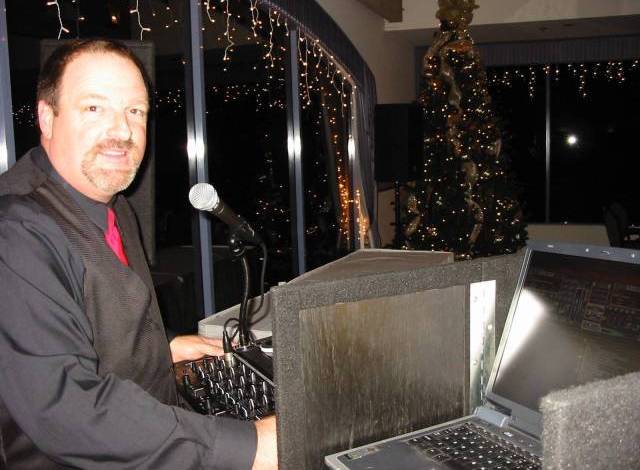






3853 Atlantic Ave.
|
Click here |
It's Here: Dead Crow w/ West Nile Virus ID'd in LB; Residents Again Urged to Take Precautions
(June 18, 2004) -- An American crow identified as carrying the LBReport.com has learned the This marks the first WNV positive dead bird found in LB in 2004. Three dead birds were found in LB in 2003...for the entire year.
The Greater Los Angeles County Vector Control District reports that the bird was recovered on June 7 and identified as WNV positive on June 17.
The news comes as totals continue to mount: over 200 WNV infected dead birds have been found in both Los Angeles County and San Bernardino County this year...with six human cases of the disease now reported this year in San Bernardino County...five within the past week.
In a written release, the CA Dept. of Health Service's Arbovirus Surveillance web site says five new probable human WNV cases occurred last week in San Bernardino County (64-year-old female, 19-year-old male, 17-year-old male, and two 12-year-old males).
"In May, they experienced fever, muscle aches, headache, and a rash. None were hospitalized," the CA Dept. of Health Services says.
The first CA human case, also in the San Bernardino County area, was a 40-year old woman who "experienced fever, headache, and body aches on May 17. By May 19, she had developed a non-pruritic rash on her trunk and extremities. She also noted weakness and fatigue...The patient has since recovered except for complaints of a residual headache and fatigue," the state agency said.
For the week ending June 18, 97 dead American crows tested positive for WNV from the Counties of San Bernardino (40), Los Angeles (40), and Riverside (17) on June 17. A total of 128 bird carcasses were tested from these three counties accounting for 75.8% positive results (97/128).
No human cases of WNV have been reported in 2004 anywhere in L.A. County to date.
However as reported last week exclusively by LBeport.com, Dr. William Reisen, Research Entomologist and Director in Residence, Mosquito & Arbovirus Ecology, Davis Arbovirus Research Unit told a June 9 meeting of the Greater Los Angeles County Vector Control District's Board of Trustees:
"We're in the middle of the largest Over the past several weeks, WNV positive dead birds have been identified mainly in Inland Empire area, the San Gabriel Valley, southeastern L.A. County down the San Gabriel River area. The Greater L.A. County Vector Control District reports the following data on June 18 (apparently from its area alone, mainly eastern L.A. County):
Various government health agencies have indicated that most healthy people bitten by mosquitoes carrying West Nile Virus (WNV) won't get sick although some may develop "flu like symptoms." However, an estimated 1 in 150 people bitten by People (and birds and horses) get infected with WNV when bitten by infected mosquitoes. Infected mosquitoes bite crows and other corvid birds (which can travel considerable distances), and new mosquitoes then bite the infected birds and spread WNV further. Mosquitoes breed in standing water...and government agencies have urged the public to eliminate any sources of standing water on their property and take other precautions: LB Health Officer Dr. Darryl Sexton said in a written release issued June 18: "I want to emphasize that the overall risk of serious illness to humans from WNV is low. Most individuals who are infected with WNV may not experience any illness. Approximately 10 to 15 percent of infected individuals will have only mild to moderate symptoms, such as fever, headache and body aches. Less than one percent of individuals will develop serious neurological illnesses such as encephalitis and meningitis. However, the elderly, the very young and those with lowered immune systems are more susceptible to serious illness and should take extra precautions to avoid being bitten by mosquitoes." In its release, LB's Dept. of Health and Human Services recommended that residents take the following precautions: Businesses are also urged to check their property weekly and to eliminate any standing or stagnant water and to maintain swimming pools to summertime conditions. Green or dirty pools can breed thousands of mosquitoes in a week’s time, unnecessarily increasing the population’s risk of contracting WNV. The DHHS is also requesting residents to cooperate by reporting any dead birds to 1-877-WNV-BIRD. Dead birds, especially crows, may be an early indication of WNV activity. Working together, the DHHS and Long Beach Residents can break the mosquito life cycle and minimize the risk of mosquito-borne illness such as WNV. If you have any questions regarding mosquito control measures in the City of Long Beach, please contact the DHHS’ Vector Control Program at (562) 570-4132 or go to the DHHS’ website at www.longbeach.gov/health. Further information may be obtained at the State of California Department of Health Services website at www.westnile.ca.gov, or at the Federal Centers for Disease Control and Prevention website at www.cdc.gov/ncidod/dvbid/westnile. Recent LBReport.com coverage: Contact us: mail@LBReport.com |